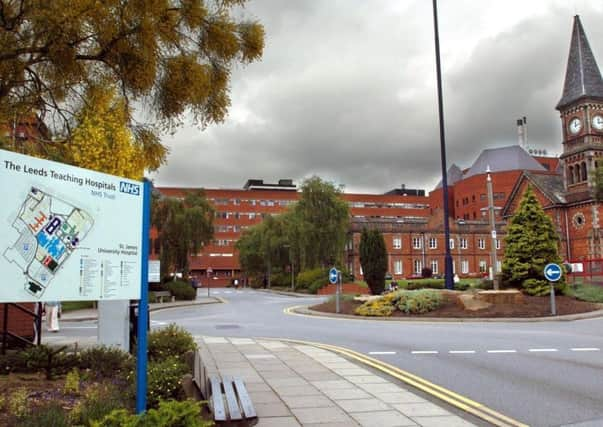Rise in hospital admissions of elderly people at Leeds Teaching Hospitals Trust


A charity fighting for older people’s rights think that in many cases these admissions could be avoided with more funding and better services.
Latest figures reveal that hospitals in Leeds Teaching Hospitals trust admitted patients over 65 years old 88,550 times from April 2017 to March 2018, compared with 82,647 five years earlier.
Advertisement
Hide AdAdvertisement
Hide AdThese figures refer to the number of episodes of care for patients rather than the number of patients. They include all the emergency and scheduled admissions at hospitals.
Data shows that population ageing is putting strain on medical services in Leeds Teaching Hospitals trust whereas episodes related to younger patients rose at a slower pace.
Admissions of people between 30 and 55 years old increased by only 2 per cent.
Caroline Abrahams, charity director at Age UK said: “It is important that older people receive the treatment and care they need when they need it. However, we know that in some cases being admitted to hospital is the consequence of failing to deliver the right care at the right time and could have been avoided.
Advertisement
Hide AdAdvertisement
Hide Ad“Poor care planning and lack of social care support can mean older people struggling on until they have a serious health crisis or an accident and end up in hospital. Equally, poor discharge and home from hospital support can mean people end up being readmitted needlessly.
“The NHS will struggle to cope with the increasing pressures brought on by lack of social care provision unless the system is radically reformed, given adequate funding and a much more joined-up approach is taken on looking after older people’s needs.”
Nationally, the number of admissions increased by 13 per cent on average.
In total, Leeds Teaching Hospitals trust hospitals delivered 238,935 causes of admission in 2017-18, 6 per cent more than in 2012-13.
Advertisement
Hide AdAdvertisement
Hide AdIn 32 per cent of the cases, the episode was related to emergencies. Appointments on the waiting list were the second largest cause of admission.
Nigel Edwards, chief executive at the think tank Nuffield Trust, put this increase down to the rising number of patients with multiple conditions who need to go to hospital more often.
He said: “A significant amount of the rising emergency admissions to hospital is related to patients who two decades ago would have died. Now they survive cancers, heart attacks or diabetes, but after recovery they are not as well as before contracting the disease, so they will likely have to be readmitted again.
“We cannot link the population ageing to the increase of admissions. Ageing helps to make people more prone to have several diseases but it is just one of the components.”
Advertisement
Hide AdAdvertisement
Hide AdAn analysis carried out by the Nuffield Trust think tank this year highlighted that the total number of emergency readmissions to hospital in England increased by 19.2 per cent between 2010-11 and 2016-17 .
The NHS considers patients as readmitted when they go back to hospitals in an emergency within 30 days of discharge.
Nigel Edwards said: “As hospitals get busier, the pressure to get people out earlier gets greater but some of these discharges don’t work”.
In Leeds Teaching Hospitals trust the average length of stay in hospital was five days from April 2017 to March 2018. In 71,680 of the admissions, the patient was discharged within a day.